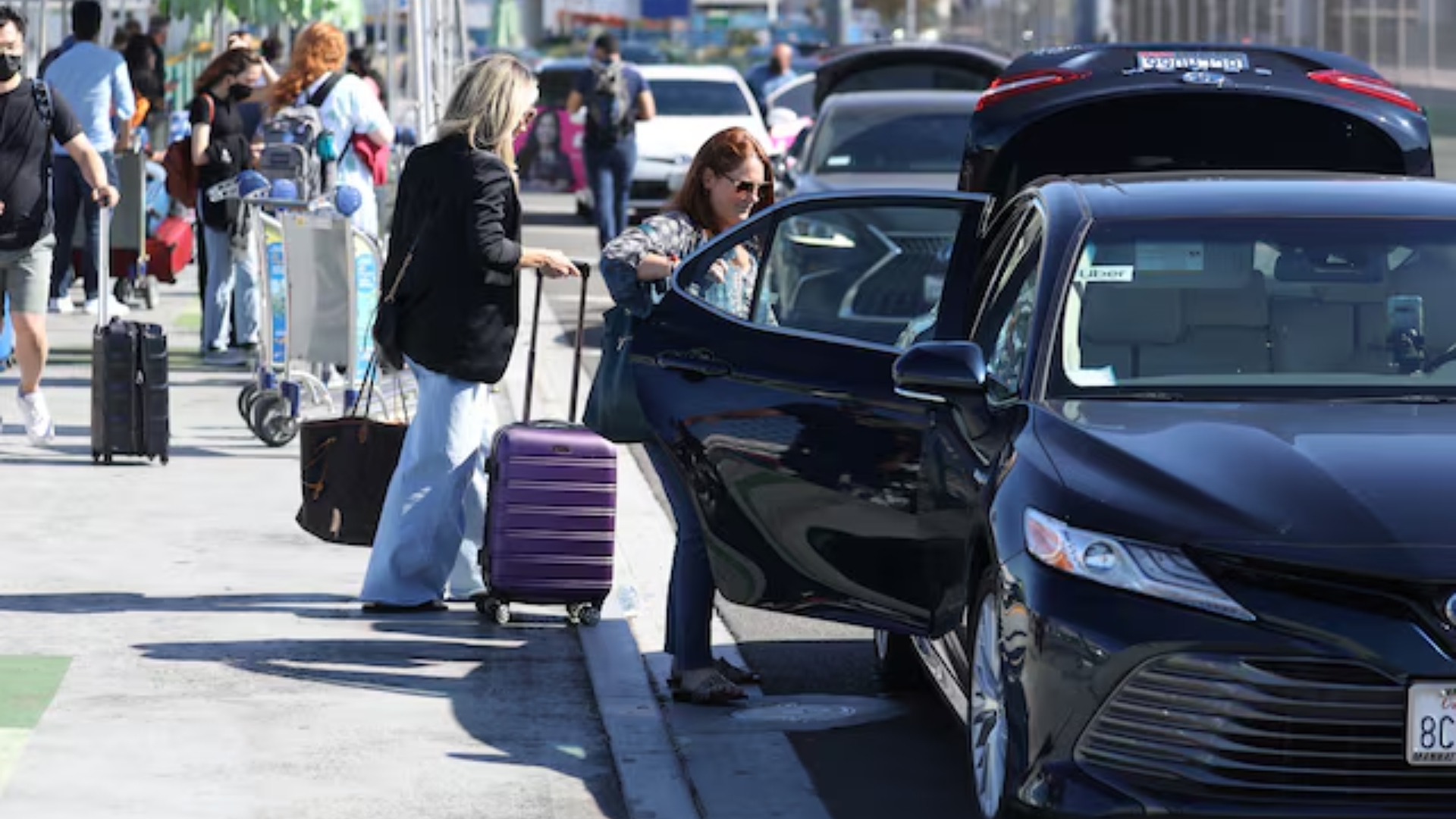(Reuters) – Uber posted a surprise quarterly loss and forecast gross bookings below Wall Street expectations, sending its shares down 9% and putting the ride-share and food delivery company on course to shed more than $10 billion in market value.
Uber’s disappointing forecast was in sharp contrast to an upbeat guidance late on Tuesday from smaller rival Lyft, which lifted its shares up 8%.
Lyft posted strong quarterly results, leaning on an industry-wide pickup in demand, while Uber’s results signaled growth slowing from 2023 in which it posted first annual profit by dominating the U.S. ride-share market and delivery business.
Uber also missed Wall Street’s expectations for first-quarter gross bookings, a key metric that indicates the total dollar value of transactions on the platform.
CFO Prashanth Mahendra-Rajah pointed to softer ride-share demand in Latin America and the impact from certain holidays shifting into the first quarter.
Uber operates in about 70 countries and offers services including meal deliveries and freight booking. It had a 72% share of the U.S. ride-hailing market in the March quarter, up from 68% two years ago, according to YipitData.
Lyft, a much smaller company, offers ride-hailing services only in the United States and parts of Canada.
Uber reported a net loss of $654 million, driven by legal charges and provisions and those related to fair valuation of certain company investments. Analysts were expecting a net profit of $503.1 million.
“We were already expecting a deceleration in average spending in several markets due to slower-than-expected economic activity in the US in Q1 and persistent consumer pressures. However, this is way above the base case,” said Thomas Monteiro, senior analyst at Investing.com.
Lyft is trying to take market share from Uber in the North America market, especially since it hired David Risher as CEO last April.
Besides aggressively cutting costs, Risher has managed to add users to Lyft with shorter wait times and competitive fares.

In the quarter ended Mar. 31, gross bookings came in at $37.65 billion, closely missing expectations of $37.92 billion.
Revenue rose 15% to $10.13 billion, narrowly beating the estimate of $10.11 billion. On an adjusted basis, Uber lost 32 cents per share, compared with expectations of 23 cent profit.
Reporting by Yuvraj Malik in Bengaluru; Editing by Arun Koyyur











